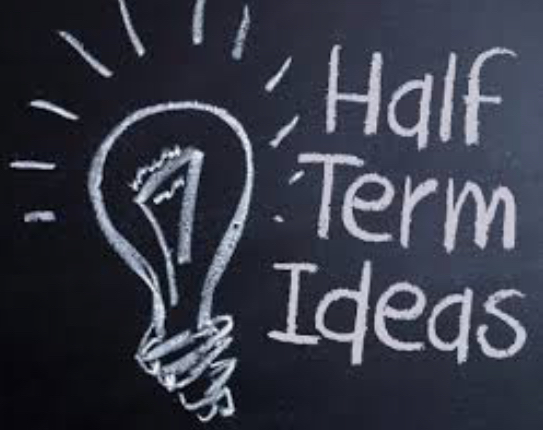Education doesn’t have to stop in half term – in fact – it’s the perfect time to investigate, discover and consolidate learning that’s been happening in the classroom. Here are some teacher ideas for you to try with your kids over the holidays. Much more beneficial than generic homework (hello boredom, confusion, meltdowns) these activities should put the fun into holiday learning.
- Visit a museum.
With loads of free activities on offer over the holidays, museums are a fantastic way to learn new things in a hands on fashion. To make it really relevant, visit somewhere that links to something your child has learnt about in school recently.
2. Read a book… together
Head to the library and find a book that the whole family will enjoy. It might be a picture book, comic, information text or novel, depending on age, ability and interest. Then find time in the day to take it in turns to read together, discussing as you go. Take a real interest and let your child take the lead. Treat it as your own little family book club!
3. Bake a cake
Baking encourages creativity but there are also plenty of scientific and mathematical lessons to be learnt too. Allow your child to predict what might happen when you mix ingredients together/heat them up, weigh, measure and read scales and of course, decorate at the end! To add a literacy flair, see if they can write the recipe up as instructions for a friend or another family member.
4. Count your pennies
Grab your piggy bank and get counting! Younger children will love sorting and matching the coins and older kids can become your personal banker by checking how much you have. This is an underrated, hugely beneficial activity that helps children understand the value of money, especially in this cashless era. Then you can play shops or even head to the real ones!
5. Make a timetable
Organisation skills and understanding how to manage your time isn’t covered much in the curriculum. Allow your child some autonomy over their holidays by creating a timetable together. It can be as simple or complicated as you like, depending on age and ability. Make sure you include the days of the weeks and times of day. Make it eye-catching and visual and refer to it every day.
6. Discuss
Why not make dinner that little bit more exciting by discussing some interesting topics? Being able to give an opinion with reasons and evidence is a vital skill that your child will use in many areas of the curriculum. Here are some suggestions:
3-5 year olds: Would a dinosaur make a good pet?
6-8 year olds: If you won a million pounds, would you move to a different area?
9 and over:Is it better to be scared of nothing or scared of everything?
Happy holidays from Bella Learning! Do join our facebook group Ask A Teacher to discuss all things primary school.

